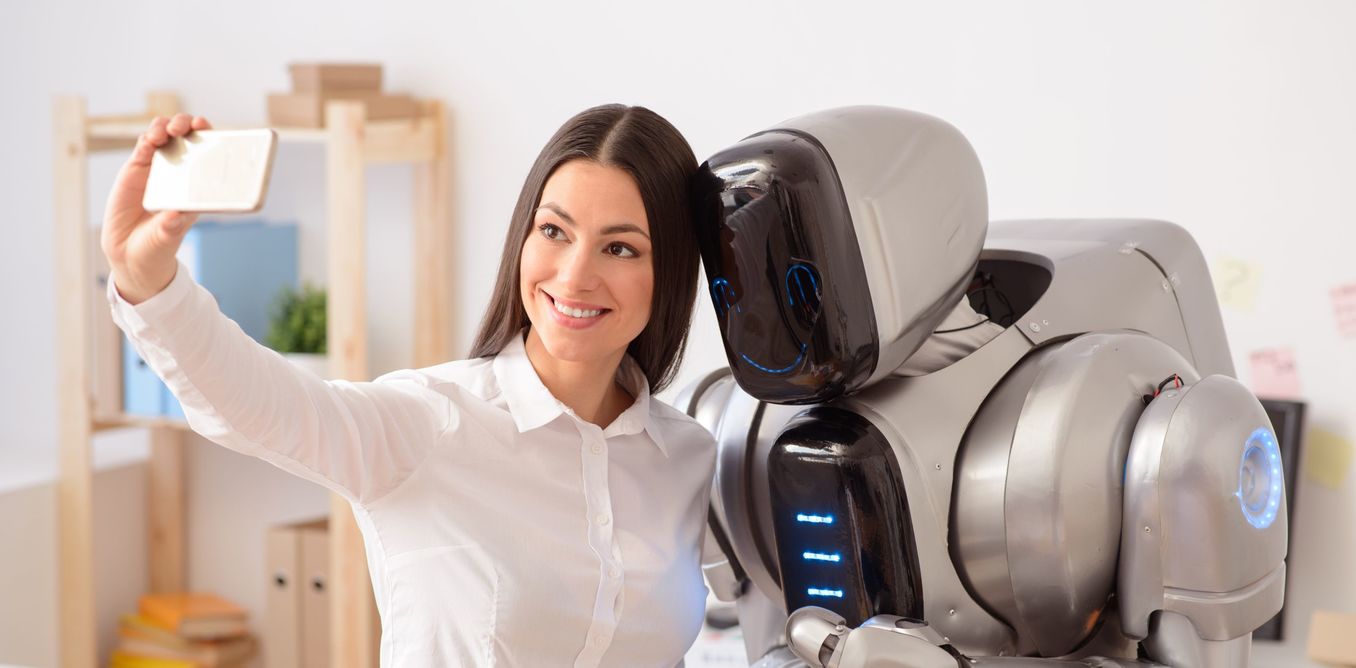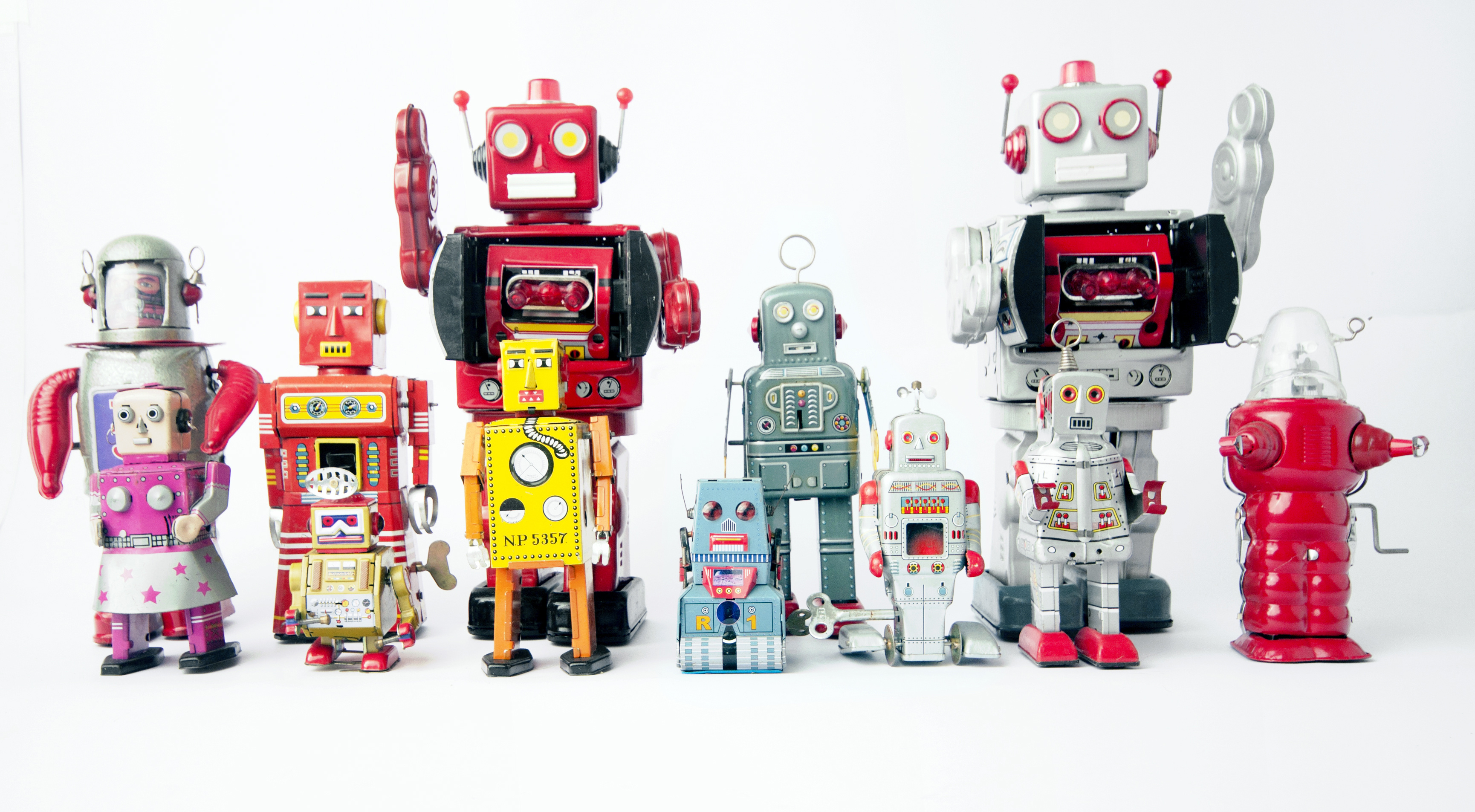It’s here – a world in which helper robots live with us, get us through the day, and yes, become our trusted friend. Science fiction is becoming science fact.
As sci-fi writer William Gibson has apparently noted: “The future is already here – it’s just not very evenly distributed.”
The demand for helper robots is booming, and academia, industry and the military are working overtime to meet the need as a whole new industry gains momentum.
The demand is fuelled by the existence of those boring, dirty and dangerous jobs that nonetheless need doing. Those low-paid jobs that are considered beneath human dignity today, at least in the developed world.
What better than a life-like robot to relieve us of this drudgery?![]()
Good company
Of course, robots need to be good company if we are to have them in our lives, sharing our homes and workplaces, having them do things for us. And this requirement applies to all robots, not just the walking, talking ones, but also the artificial intelligence (AI) embedded in larger systems or on the web.
User-friendliness is achieved through natural speech and affective computing, which allows the AI to “get to know you” by recognising the cycles of your emotional states over time, inferring it from your tone of voice and body language.
The big names in the tech world, such as Google, Microsoft, Apple, Facebook, are putting much effort into software that can understand language, known as chatbots, seeing them as the next big thing.
Microsoft CEO Satya Nadella said at the Build conference in San Francisco in March that chatbots, or “conversations as a platform”, are the next big thing in computing, as important as the shift to graphical user interfaces, the web browser and touchscreens.
A big claim, since many would argue that these have been important steps forward in the way humans interact with computers.
Chatbots have enormous potential to put computing resources within easy reach of non-technical users. You can use a chatbot to make an appointment, book your car in for a service, buy flowers for that special someone, arrange a holiday, find a place to live or explore your special interests.
All of these and much more become possible when you can simply ask for it to be done via a natural speech digital assistant.
In the guise of Microsoft’s Cortana, Facebook’s M, Apple’s Siri, Amazon’s Alexa etc, these smooth-talking chatbots will be the point of contact between you and the many worker bots.
They will be like a combined executive assistant and concierge, a trusted confidant that anticipates your needs and seamlessly coordinates the activities of the lower level agents as they go about their business in the cloud.
The poets of Silicon Valley
Creative writers are finding gainful employment these days in the world of high technology, as reported recently in the Washington Post.
Writers who once wrote screenplays and poems are now putting their talent toward creating likeable characters for chatbots and giving them cool things to say. The new breed of smart digital assistants look good, sound good and are backed by the latest AI.
With the trend towards integrated computing environments that gives people cross-platform access to their cloud-connected applications and data, it is reasonable to expect that your digital assistant will go with you when you put down one device and pick up another, or go from one location to another.
For example, when you leave home and get into the self-driving car that has been quietly charging its batteries from the solar panels on your roof, the same digital assistant that you were interacting with in the home office becomes the voice of the car that you now give directions to.
On a particular day of the week, knowing that you normally go to the office at this time on that day, the car asks in an appropriate conversational tone if that’s where you are headed, like any good chauffeur might.
The following week, you jump in the car and tell it to take you to work, but the digital assistant reminds you that you have a doctor’s appointment in your schedule and should we go there instead?
On the way to your appointment, you review and send several emails that the assistant has drafted. You also have time to dictate content on a proposal, with help from your research assistant-cum-driver.
The idea of intelligent, natural speech assistants will still likely go through the four stages of idea acceptance outlined by British geneticist John Burdon Sanderson Haldane:
- this is worthless nonsense
- this is an interesting, but perverse point of view
- this is true, but quite unimportant
- and finally – I always said so!
In five or ten years, when we have got over our scepticism and become reliant upon our digital assistants, we will wonder how we ever got along without them.
Author
Lecturer in Applied Ethics and Socio-Technical Studies , Griffith University
This article was originally published in the 







I’ve been using computers since I was 4, they have always been digital assistants. Cortana, siri, OK Google and others will definitely continue to refine into optimized forms and be transferable accross devices, but they are likely to be fully customizable and might even be your great grand father’s voice in 70 years, or whoever you likes voice and shape and recommendations.